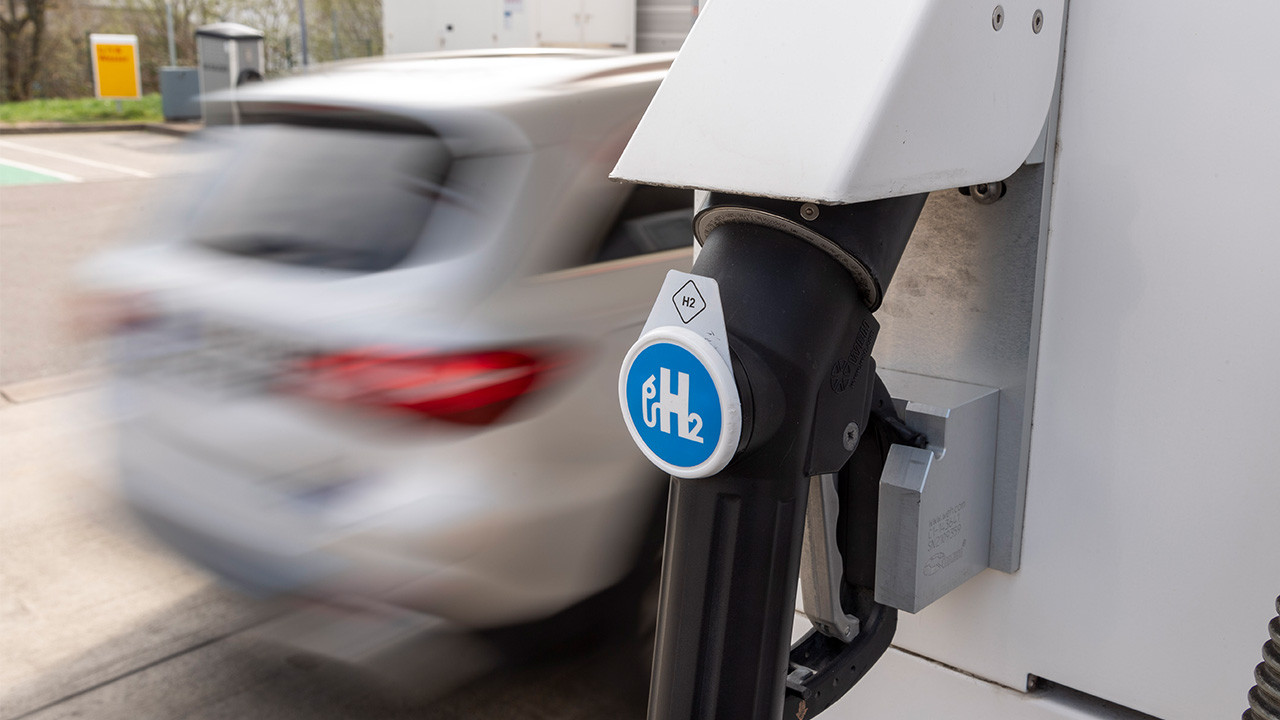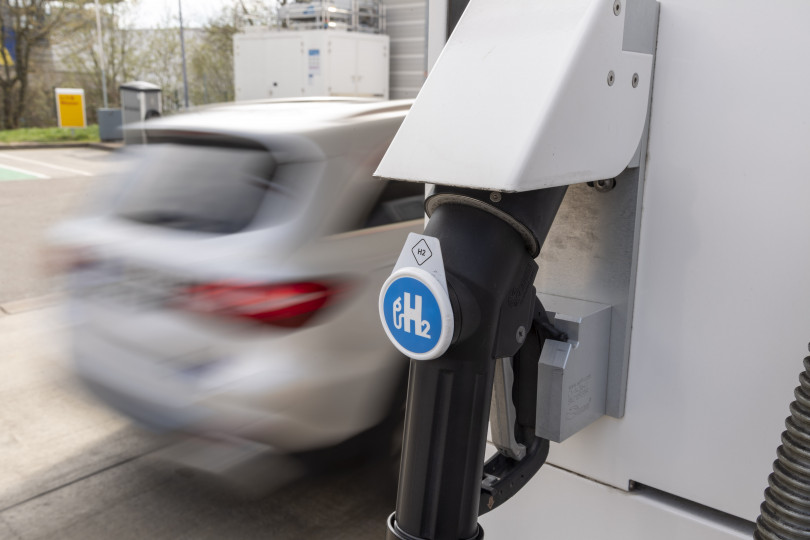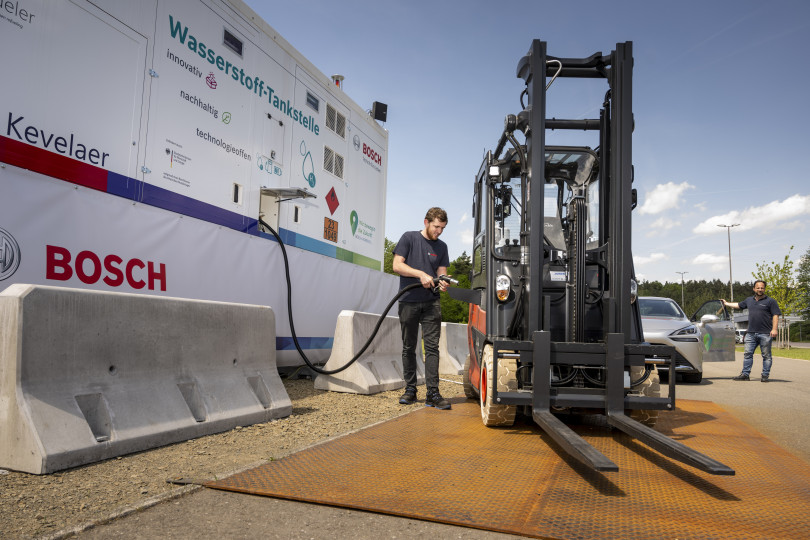Stuttgart, Germany – Bosch is working intensively to develop a hydrogen-based economy, actively supporting the transition to alternative energies with its experience in the production of sustainable technologies on an industrial scale. "On the path to a climate-neutral future, we have to make it possible for energy-intensive industries to shift to renewables. Hydrogen will be a key element in security of supply," said Rolf Najork, member of the Bosch board of management. Bosch offers hydrogen technologies in various sectors: developing mobile and stationary fuel cells, equipping hydrogen filling stations with compressors and entering the hydrogen production market. The aim is to use hydrogen-based technologies in everyday industrial practice.
Hydrogen filling stations from Bosch
Bosch Rexroth has developed a joint solution with Maximator Hydrogen for hydrogen compression processes for hydrogen filling stations, storage tanks and pipelines. Bosch aims to make this technology available for around 4,000 hydrogen filling stations by 2030, so that one in three hydrogen filling stations worldwide would be equipped by Bosch components. Bosch and Maximator Hydrogen are helping considerably to make the everyday use of green hydrogen economical – in passenger cars, commercial vehicles, buses and trains. "Industry is paving the way towards a climate-neutral future, and Bosch industrial technology will deliver key components for this environmentally friendly transformation," explains Rolf Najork, the company’s manufacturing technology chief.
Fuel cell micro-power plants for energy security
The global energy demand of industry is increasing, and one of the main challenges is the fluctuating availability of renewable energy. This is where stationary solid oxide fuel cells can help a lot. These are essentially decentralized micro-power plants that can be flexibly deployed where the energy is actually consumed, which makes them ideal for efficiently supplying power for industry. More than 50 stationary Bosch fuel cells are now in operation at various industrial sites, with series production scheduled to start in 2024.
Bosch is also getting involved in hydrogen production
In the future, Bosch intends to supply not only the technology for compressing hydrogen and converting it into electricity, but also to be involved in the production of hydrogen. To this end, the company is investing around 500 million euros in the development of components for electrolyzers by the end of the decade. These units use electricity to split water into hydrogen and oxygen during electrolysis. Provided the electricity used comes from renewables, the end product is green hydrogen.
Carbon neutral production: the first full hydrogen cycle at Bosch is already in operation
A hydrogen cycle is already in operation at Bosch's own plant in Homburg, Germany, and this solution will be used in future factories. The hydrogen cycle uses renewable energy to produce green hydrogen using an electrolyzer. The green hydrogen is used for manufacturing processes and, also using Bosch technology, compressed hydrogen is used to refuel fuel cell vehicles. Bosch aims to systematically reduce the energy consumption of its factories and to produce most of this energy from renewable energy sources in the future.
Zita Hella Varga
Phone: +36 70 667-6374
The Bosch Group is a leading global supplier of technology and services. It employs roughly 402,600 associates worldwide (as of December 31, 2021). The company generated sales of 78.7 billion euros in 2021. Its operations are divided into four business sectors: Mobility Solutions, Industrial Technology, Consumer Goods, and Energy and Building Technology.
As a leading IoT provider, Bosch offers innovative solutions for smart homes, Industry 4.0, and connected mobility. Bosch is pursuing a vision of mobility that is sustainable, safe, and exciting. It uses its expertise in sensor technology, software, and services, as well as its own IoT cloud, to offer its customers connected, cross-domain solutions from a single source. The Bosch Group’s strategic objective is to facilitate connected living with products and solutions that either contain artificial intelligence (AI) or have been developed or manufactured with its help. Bosch improves quality of life worldwide with products and services that are innovative and spark enthusiasm. In short, Bosch creates technology that is “Invented for life.” The Bosch Group comprises Robert Bosch GmbH and its roughly 440 subsidiary and regional companies in some 60 countries. Including sales and service partners, Bosch’s global manufacturing, engineering, and sales network covers nearly every country in the world. With its more than 400 locations worldwide, the Bosch Group has been carbon neutral since the first quarter of 2020. The basis for the company’s future growth is its innovative strength. At 128 locations across the globe, Bosch employs some 76,100 associates in research and development, of which more than 38,000 are software engineers.
The company was set up in Stuttgart in 1886 by Robert Bosch (1861–1942) as “Workshop for Precision Mechanics and Electrical Engineering.” The special ownership structure of Robert Bosch GmbH guarantees the entrepreneurial freedom of the Bosch Group, making it possible for the company to plan over the long term and to undertake significant upfront investments in the safeguarding of its future. Ninety-four percent of the share capital of Robert Bosch GmbH is held by Robert Bosch Stiftung GmbH, a charitable foundation. The remaining shares are held by Robert Bosch GmbH and by a corporation owned by the Bosch family. The majority of voting rights are held by Robert Bosch Industrietreuhand KG, an industrial trust. The entrepreneurial ownership functions are carried out by the trust.
Additional information is available online at www.bosch.hu, iot.boschblog.hu, www.bosch.com, www.iot.bosch.com, www.bosch-press.com, www.twitter.com/BoschPresse





